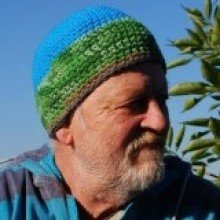We call formal schooling ‘education’, but did you know that there are other forms of learning available which bear no relation to formal schooling at all? One of these alternative forms of education is meditation; you cannot learn what meditation has to offer academically, it can only be gained by doing it, by the practice of meditation itself. There is, though, another form of learning that we have all participated in and, where meditation is a choice, we had no choice about this other form because it was all that was available to us at the time. It is a way of learning that we are often either entirely unaware of or have mostly forgotten and yet its value is incalculable.
If you think of life as a mountain, academic learning takes place off the rock faces, academic learning uses reason and intellect and is about gaining knowledge that will be valuable to us when we engage with the mountain. In writing this piece I am utilising the academic knowledge gained in schooling to communicate thoughts and ideas and understanding of different forms of education. So far so good.
What about the rock face, though, what’s going on when we are fully engaged with the lived experience of life as we are when we are starting life as a baby? A baby does not have access to reason or language and yet during the first two years of life, all being well, a child is fully engaged in a continuous learning experience in which she will pretty much master all the skills that she will utilise for the rest of her life including walking and talking.
What is amazing about this way of learning is that there is no intellectual separation in the learning process; experience itself is the learning process which I call Intuitive Learning, leaning by being and doing. It’s a beautiful process, watch any child who has engaged with something for a period of time and observe her complete absorption in the process. The first two years of life is probably the most intense period of learning we ever engage with.
We are moving out of the age of reason and coming to recognise reason as just one tool in our tool box of life. Intuitive learning does not require reason; it is the direct experience of life which requires no explanation or internal dialogue. In fact, all too often our internal dialogue interferes with our experience of life. Surfers, sky divers, rock climbers, wild water canoeists all engage with life in a way that requires no internal dialogue. A surfer has no time to reason her way on the wave, she must trust her ability, read the wave as a primary experience, and respond accordingly.
Returning to intuitive learning has enormous benefits; it allows us to reconnect to the world around us without rationalising it or trying to reason it out. We can learn to quieten our internal dialogue and open up to a deeper and more satisfying connection to, and experience of, the world in which we live. As a very simple exercise, just walking barefoot on grass and other different surfaces and putting our attention on experiencing the feel of the ground under our feet opens our intuitive self. Playing, or learning to play again, helps us to be connected to ourselves and others, as do swimming, cycling and walking. Our reductionist reasoning world is only one way to see and experience life; other ways of being are available and very much worth exploring, not least because it increases well being.
Keith Lindsay Cameron







